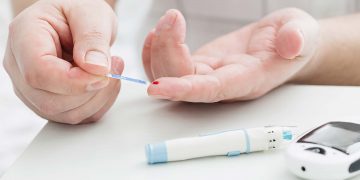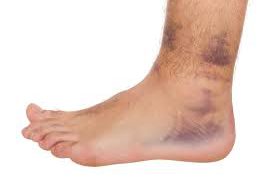Some people experienced the warning signs of diabetes, but they did not do anything about it probably because the symptoms of diabetes are easy to be misrepresented or maybe it is just a lack of knowledge about the early signs of diabetes mellitus. Being at risk for diabetes mellitus is a significant factor in the onset of adult diabetes.
There are three main types of diabetes namely type 1diabetes, type 2 diabetes and gestational diabetes. Gestational diabetes is a bit like diabetes type 2 but occurs during pregnancy.
The different symptoms of diabetes are basically the same but are brought about by different processes.
Type 1 diabetes occurs when the pancreas the organ which produces the vital hormone insulin malfunctions and stops producing that necessary fluid. Without the insulin hormone the glucose gets trapped in the blood causing the various symptoms of diabetes.
Type 2 diabetes is a bit different: in this type of diabetes the pancreas produces too much insulin. The sugar is there in the blood but the insulin is abnormal or the muscle tissue or cells are not responding to the insulin being produced. This seems like the two side of the same coin – the insulin being abnormal or the cell lace sensitivity to the insulin. In one book surviving diabetes the author states that it is caused by us training our body to basically flood the blood stream with excess insulin because of the foods we eat.
In summary, on one hand the pancreas produces no insulin or very little and on the other hand the pancreas produces excess insulin that is unworkable.
This opposite produces the same symptoms because they achieve the same result- excess glucose or sugar in the blood stream.
The body is a very advanced piece of equipment or machinery: when one part of it malfunctions it tries to compensate for it.
Frequent urination
When there is excess sugar in the blood that the pancreas cannot deal with the kidneys will, realises this and, try to get rid of the excess by passing it out the body with the urine. It is not the best thing to do since it leads to kidney problem later on but the body had no choice. If it does not do this the sugar will dry the water from the cells – guess changing the cells from being like grapes to being raisons.
The blood sugar has to be within a certain range to function properly and the blood having to be within a certain consistency. With the excess water in the blood it is being diluted and therefore the body has to get rid of the excess water. Since the sugar in the blood what is causing the problem – drawing water from the cell into the bloodstream. The kidneys both get rid of the water and the sugar.
Excessive thirst
The cells are being dried out; which is not a good thing. Therefore the brain sends messages for you to drink more fluid to prevent dehydration. This is the reason why diabetics experience excessive thirst.
Increased appetite
If the sugar is in the blood but the cells not getting the fuel it needs then the brain is tricked in thinking there is not enough glucose to provide energy needs and then messages are sent (from the brain) telling you that you need to eat more food to provide the necessary sugar – the food for the cells. So it is like you have an everlasting hunger.
Hope this article was useful.



















